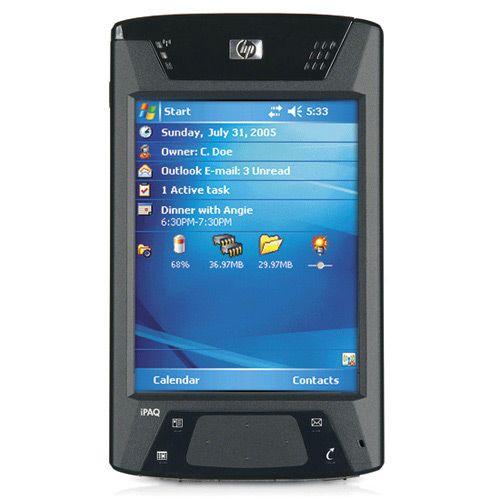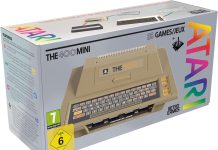In the rapidly evolving world of technology, it’s easy to overlook the innovations that paved the way for the devices we use today. As someone who has always been fascinated by technology, I often find myself reflecting on the Pocket PC—a device that can rightfully be considered the precursor to today’s smartphones. In this article, I will explore the history, features, and impact of Pocket PCs, shedding light on why they were once hailed as the original ‘smartphones’.
What is a Pocket PC?
The Pocket PC, introduced in the early 2000s, was a handheld device that combined the functionality of a personal digital assistant (PDA) with the capabilities of a computer. Running on Windows Mobile, these devices were designed to help users manage their personal and professional lives effectively.
Key Features of Pocket PCs
When I think back to the features that defined Pocket PCs, several standout capabilities come to mind:
- Touchscreen Interface: The Pocket PC was one of the first devices to incorporate a touchscreen interface, allowing for intuitive navigation and interaction.
- Telephony: Many Pocket PCs supported cellular communication, enabling users to make calls, send texts, and access the internet on-the-go.
- Productivity Tools: With applications like Microsoft Word, Excel, and Outlook, these devices were perfect for professionals needing to manage documents and emails efficiently.
- Synchronization: Pocket PCs could easily sync with PCs, making data transfer seamless and keeping information consistent across devices.
The Evolution of Technology
As I delve deeper into the evolution of technology, it’s fascinating to see how the Pocket PC set the stage for the smartphones we rely on today. The introduction of features such as app stores, enhanced graphics, and improved battery life can all trace their roots back to the innovations found in Pocket PCs.
The Rise of Pocket PCs
I remember the excitement that surrounded the launch of the first Pocket PCs. The initial models, such as the Compaq iPAQ and the HP Jornada, quickly gained popularity among tech enthusiasts and early adopters. These devices offered a glimpse into a future where everything from communication to productivity could fit in the palm of our hands.
Market Adoption and Popularity
The Pocket PC gained traction among business professionals who appreciated the ability to manage schedules, emails, and contacts all in one place. With the rise of mobile applications, developers began creating software specifically designed for these devices, further enhancing their functionality.
However, the Pocket PC’s journey was not without challenges. Competing technologies, such as BlackBerry devices and later the iPhone, began to shift consumer preference, ultimately leading to a decline in Pocket PC popularity.
The Decline of Pocket PCs
As I reflect on the decline of Pocket PCs, it’s essential to highlight the rise of smartphones and how they transformed the landscape of mobile technology. The introduction of Apple’s iPhone in 2007 marked a significant turning point, bringing a user-friendly design and an ecosystem of apps that Pocket PCs struggled to compete with.
Key Factors in the Decline
- User Experience: While Pocket PCs were powerful, their interfaces were often clunky and less intuitive compared to the sleek designs of modern smartphones.
- App Ecosystem: The inability to create a robust app ecosystem comparable to what Apple and later Google provided made it difficult for Pocket PCs to retain users.
- Consumer Preferences: As consumers began to prioritize multimedia capabilities, the Pocket PC’s productivity-focused features became less appealing.
Lessons Learned from Pocket PCs
Despite their decline, there are critical lessons we can learn from the Pocket PC era. As I analyze these lessons, I find they remain relevant in today’s fast-paced tech environment.
Innovation is Key
The Pocket PC taught us that continuous innovation is crucial for survival in the tech industry. Companies must adapt and evolve, embracing new technologies and user preferences to stay relevant.
The Importance of User Experience
Another important takeaway is the significance of user experience. A device may have powerful features, but if it’s not user-friendly, it risks alienating potential customers.
Building an Ecosystem
The success of modern smartphones is largely due to their extensive app ecosystems. For future devices, creating a supportive environment for developers can lead to greater user engagement and satisfaction.
Conclusion
In conclusion, the Pocket PC holds a unique place in the history of mobile technology. As I look back on its evolution, I recognize how it laid the groundwork for the smartphones we use today. While it may no longer dominate the market, its legacy endures in the sleek devices we carry in our pockets.
Reflecting on the journey of the Pocket PC not only highlights the rapid advancements in technology but also reminds us of the importance of innovation, user experience, and ecosystem development. As we move forward, let’s appreciate the foundations laid by these early devices and remain excited for what the future holds in mobile technology.
External Links
<iframe width="560" height="315" src="https://www.youtube.com/embed/wm5omDCENPo?si=RYhQ8oJx_0r85g93" title="YouTube video player" frameborder="0" allow="accelerometer; autoplay; clipboard-write; encrypted-media; gyroscope; picture-in-picture; web-share" referrerpolicy="strict-origin-when-cross-origin" allowfullscreen></iframe>




.jpg?w=100&resize=100,70&ssl=1)
